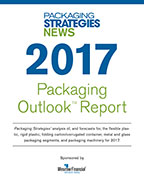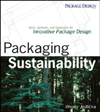Four consumer trends to come in 2018
Mintel (mintel.com) announces the four key trends set to impact North American consumer markets over the coming year. With surprises at every turn and vague uncertainty gripping Americans and Canadians daily, being attuned to consumer trends across transparency, value, self-care and automation is perhaps more crucial in 2018 than ever before.
In the coming year, Mintel predicts that:
- Companies will take a stand, speak out and prove that they're trustworthy as consumers reprioritize who and what they believe in.
- Greater opportunities will exist for brands to align their efforts with value and to prioritize bargain-hunting consumers as the stigma of shopping with a coupon is long gone.
- With widespread turmoil and unfavorable news at their fingertips, consumers will focus on self-care as they seek to better themselves in the year ahead.
- While humans have been using speech and images to communicate for thousands of years, technology will finally catch up through voice- and visual-based devices and software.
Looking ahead to 2018, Mintel consumer trends consultant Stacy Bingle and manager of trends, North America Carli Gernot highlight the major consumer trends predicted to play out in North America in the coming months and years.
Trust Funding
In a post-truth world, consumers are putting their dollars where their trust remains intact.
"We're living in a post-truth and post-trust world. As consumers grapple with news that may or may not be 'fake,' with corporations acting in ways that foster mistrust, and with organizations voicing beliefs and philosophies, more consumers will reprioritize who and what they trust in 2018. In fact, just five percent of Canadians say they trust the news stories they read on social media sites, according to Mintel research. Today, trust has become one of the strongest drivers in how consumers choose products, services, and which organizations and politicians to support," says Carli Gernot, Manager of Trends, North America at Mintel.
"Evaporating trust means that companies sometimes have little choice but to communicate where they sit on various issues, make bold moral actions and take clear political stances when necessary. Product innovation that meets the changing needs of apprehensive consumers can build or redeem trust, including adding more information to packaging or incorporating livestreams of production methods. In the year ahead, brands will need to court consumers with transparency, honesty and facts; at the same time, they will need to find new ways to prove their positions," continued Gernot.
The Value Equation
Budget-minded consumers are weighing a variety of value factors for each purchase decision, and brands are making these individuals a priority.
Carli Gernot, manager of trends, North America at Mintel says, "While it's true that values matter, brands are similarly clear about the importance of value when appealing to lower-income or merely budget-focused consumers. Consumers, on the whole, are feeling a bit more positive about their money – 43% of Americans describe their economic situation as 'healthy' in 2017, according to Mintel research – although they are still cautious with spending. More brands are focusing efforts to align with values, but value matters just as much to many consumers, and for a significant portion, it's the most important factor in their shopping decision."
"Tighter budgets will cause many consumers to re-evaluate whether their go-to choices are worth the cost and brands need to be able to respond accordingly. Because a large proportion of rural and low-income consumers don't have home broadband, finding value online isn't necessarily their solution for saving. The physical still matters for many consumers," Gernot adds. "As economic uncertainty continues its hold on the North American consumer base, brands that engage with low spenders and develop low-cost alternatives are set to enjoy increased attention from those looking to save in the coming year."
Health Yourself
In an uncertain and seemingly unstable world, self-care and preventative health are becoming essential for consumers across demographics.
Stacy Bingle, Consumer Trends Consultant at Mintel, says, "Interest in self-care and preventative health has been building for decades, but a combination of strong forces is bringing these topics into the spotlight in 2018. Fake news, global terror threats and sociopolitical unease are impacting consumers' well-being. In fact, Mintel research finds that two in five Americans (41%) and Canadians (39%) cite feeling less stressed out as a reason they manage their health. This is motivating many to incorporate proactive wellness methods into their daily routines, and brands will facilitate this movement with above-and-beyond initiatives.
"Emerging concerns that affect various groups will require more personalized pathways to health in the coming year. A shrinking middle class will necessitate approaches for low-income consumers; teens and young adults will face new issues resulting from a lifetime in front of screens; and the world's opioid crisis will demand even more holistic pathways to wellness. The opportunity is ripe for brands in any sector to develop their support roles for the growing number of consumers seeking to better themselves and get ahead of health concerns.".
Life in Sync: Voices & Visuals
As the line between online and offline blurs, smart systems are delivering seamless convenience – with voice control and image recognition at the helm.
"The first iteration of the trend 'Life In Sync' – one of Mintel's North America Consumer Trends for 2017 – correctly predicted that life would become 'seamless and smarter thanks to major advancements in artificial intelligence (AI).' That trajectory continues, and computer systems are now adept at understanding the words we vocalize and the images we present to them. In 2018, speak (or show) and you shall receive as the time has come for the quickness and intuitiveness of chatbots to migrate from type to talk," says Stacy Bingle, consumer trends consultant at Mintel.
"The future of AI is fraught with concerns, but it will also bring unimagined benefits to the world. According to Mintel research, three quarters (73%) of Canadian consumers who are interested in making their home better connected agree that using smart devices saves time when performing day-to-day tasks. Eventually, augmented reality (AR) will move from phones to the field of vision, syncing worlds even more effortlessly. Brands can work toward a seamless and synced future today by using voice- and visual-based technology to truly take the 'think' out of consumer interactions," concludes Bingle.
Looking for a reprint of this article?
From high-res PDFs to custom plaques, order your copy today!








